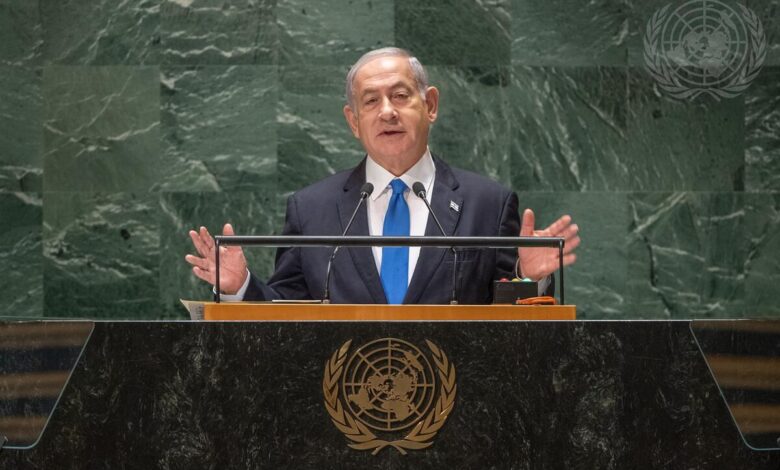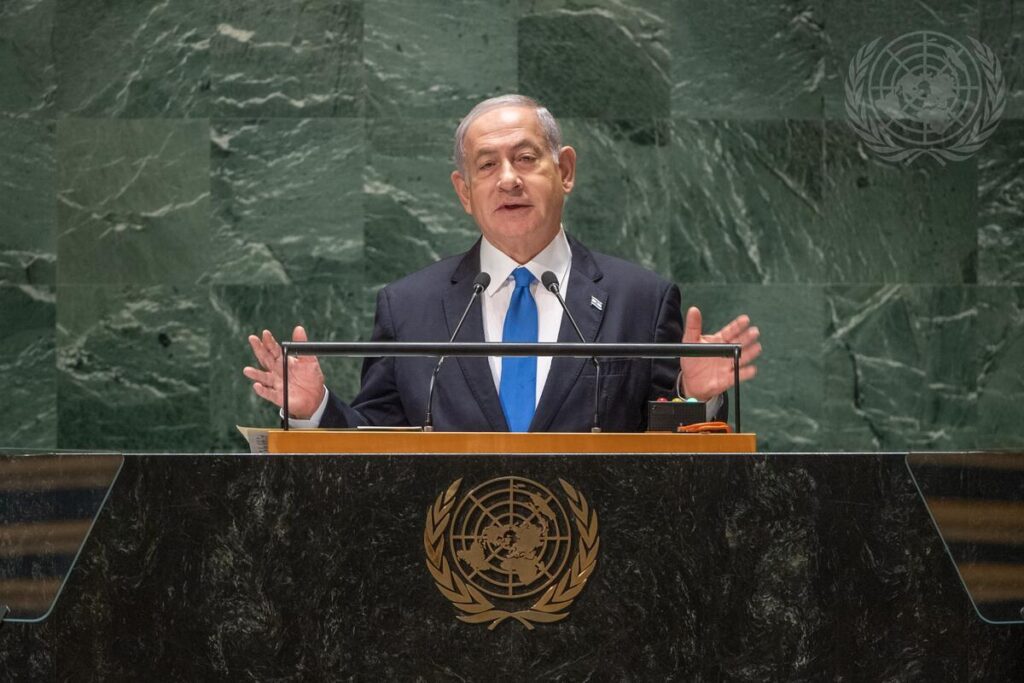Middle East Conflict: A Crossroad of Peace or Carnage?

The Fate of the Middle East
As tensions persist in the Middle East, nations and global leaders are faced with a monumental question: Will the region embrace peace and prosperity or be engulfed by chaos and destruction? Israel, at the forefront of this dilemma, has made its choice clear—pursuing peace with its Arab neighbors while confronting the terrorist forces that jeopardize this goal. This article delves into Israel’s ongoing conflict with Hamas and Hezbollah, the complex geopolitical landscape, and the future of peace in the region.
Israel’s Fight Against Terrorism
For nearly a year, the Israel Defense Forces (IDF) have been systematically dismantling Hamas’ terror infrastructure in Gaza. The IDF’s operations, which intensified after the October 7th invasion, have led to significant victories, including the neutralization of half of Hamas’ fighters and the destruction of key military assets. Israel’s objective remains clear: eliminate Hamas’ military capability, free hostages, and bring stability to the region.

In October, Hamas boasted nearly 40,000 fighters and 15,000 rockets, as well as a network of tunnels spanning 350 miles—larger than New York City’s subway system. A year later, most of this infrastructure has been decimated. Yet, Hamas still holds sway in Gaza, exploiting international aid and terrorizing civilians. Israel’s mission is not only military but humanitarian, ensuring that Hamas does not regroup and launch further attacks on Israel.
The Challenge in Gaza
Despite the IDF’s successes, Hamas continues to cling to power, exploiting the very aid meant to help civilians. This exploitation of resources extends to inflating food prices, lining their pockets at the expense of the local population. As Israel’s Prime Minister stated, “If Hamas stays in power, it will regroup, rearm, and attack Israel again.” The lesson from history is clear: Just as the Nazis were removed from post-war Germany, so must Hamas be removed from Gaza.
Biden Announces $8 Billion Aid Package for Ukraine Amid Growing Criticism
Israel’s goal is to demilitarize and deradicalize Gaza, paving the way for a peaceful civilian administration. This is not just a military operation but a mission to restore peace for both Israelis and Palestinians. A demilitarized Gaza would ensure that this is the last round of fighting, enabling a secure environment where future generations can live without fear.
Hezbollah: A Threat to Northern Israel
While Israel has been focused on Gaza, Hezbollah, another Iran-backed terror organization, has escalated attacks along the northern border. Hezbollah’s unprovoked attacks have displaced over 60,000 Israelis, turning bustling towns into ghost towns. The terror group has built extensive infrastructure to launch strikes against Israel, including tunnels and missile sites embedded in civilian areas—jeopardizing the lives of innocent Lebanese citizens.
Israel’s response has been swift, systematically targeting Hezbollah’s rocket stockpiles and key military commanders. Yet, Hezbollah continues to pose a grave threat, refusing to abide by UN resolutions aimed at disarming its forces. The Lebanese people, trapped in Hezbollah’s grip, find themselves living in a “death trap,” as Israel seeks to protect both its own citizens and Lebanese civilians.
The Path to Peace: Abraham Accords and Beyond
While combating terrorism, Israel is also committed to advancing peace. The Abraham Accords, a historic agreement between Israel and several Arab nations, marked a significant shift in the region. Israel’s vision for peace is now focused on forging ties with Saudi Arabia, a move that would not only strengthen the economies and security of both nations but could also transform the Middle East into a hub of prosperity.
A peace agreement with Saudi Arabia would not only boost trade and cooperation in sectors like energy, water, and technology but also create a broader “Abrahamic Alliance” that unites Israel with the U.S. and Arab nations. Such an alliance would be a formidable counterbalance to Iran’s influence, which has sought to disrupt the peace process.
Iran’s Role: A Catalyst for Chaos
While Israel and its Arab neighbors seek peace, Iran and its proxies, including Hamas and Hezbollah, are determined to destabilize the region. Iran’s influence extends beyond its borders, funding and arming terrorist organizations committed to Israel’s destruction. For decades, these groups have carried out attacks not only on Israel but also on Western nations, targeting civilians indiscriminately.
As Israel’s Prime Minister stated, “Iran and its proxies have made their choice—they want to move back to a Dark Age of terror and war.” The international community must decide whether to stand with Israel in its pursuit of peace or allow terror groups like Hezbollah and Hamas to flourish unchecked.
The International Response: A Divided Front
Despite Israel’s defensive actions, the international community remains divided. The UN, historically critical of Israel, has passed more resolutions against the Jewish state than any other nation combined. This, Israel argues, reflects a deep-seated bias that undermines its right to self-defense.
Israel’s message to the world is clear: It seeks peace, security, and prosperity for its citizens and its neighbors. But for that to happen, Hamas and Hezbollah must be defeated, and Iran’s influence curbed. As the conflict continues, nations around the world will need to take a stand—either with Israel in its fight for democracy or with Iran’s authoritarian regime that exports terror and suppresses its own people.
Conclusion: The Crossroads of History
The Middle East stands at a crucial crossroads. Will it embrace the blessings of peace, as envisioned in the Abraham Accords, or be consumed by the chaos and carnage sown by Iran and its proxies? Israel has made its choice—peace with its Arab neighbors, while resolutely confronting the forces of terror. As the world watches, the choices made by global powers will shape the future of this historically significant region.






2 Comments